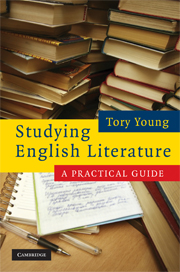Chapter 2 - Reading
Published online by Cambridge University Press: 05 June 2012
Summary
Writing as reading?
That's the thing about books. They're alive on their own terms. Reading is like travelling with an argumentative, unpredictable good friend. It's an endless open exchange.
(Ali Smith 2)[Woolf] explores the way reading – whether the reading of texts or the semiotic reading of other people from their appearance – involves bridging or otherwise negotiating gaps in information, reconstructing from hints, ‘not exactly what is said, nor yet entirely what is done’ (Jacob's Room 24) to create something of greater consistency, of great constancy, in the process of ‘making a whole’.
(Briggs 5)In effect, it is impossible to interpret a work, literary or otherwise, for and in itself, without leaving it for a moment, without projecting it elsewhere than upon itself. Or rather, this task is possible, but then the description is merely a word-for-word repetition of the work itself. It espouses the forms of work so closely that the two are identical. And, in a certain sense, every work constitutes its own best description.
(Todorov 4)In the last chapter we considered the reputation of reading as a rather passive activity without the rebellious reputation of its partner in literacy, writing. But a paradox arises out of the multiple meanings of the word ‘reading’, particularly its status as a synonym for interpretation. Almost as often as we use the verb ‘to read’ to refer to the activity of understanding the black marks on a page, we use it to mean an appraisal or opinion of a situation, an event or another visual form such as a film.
- Type
- Chapter
- Information
- Studying English LiteratureA Practical Guide, pp. 21 - 47Publisher: Cambridge University PressPrint publication year: 2008



